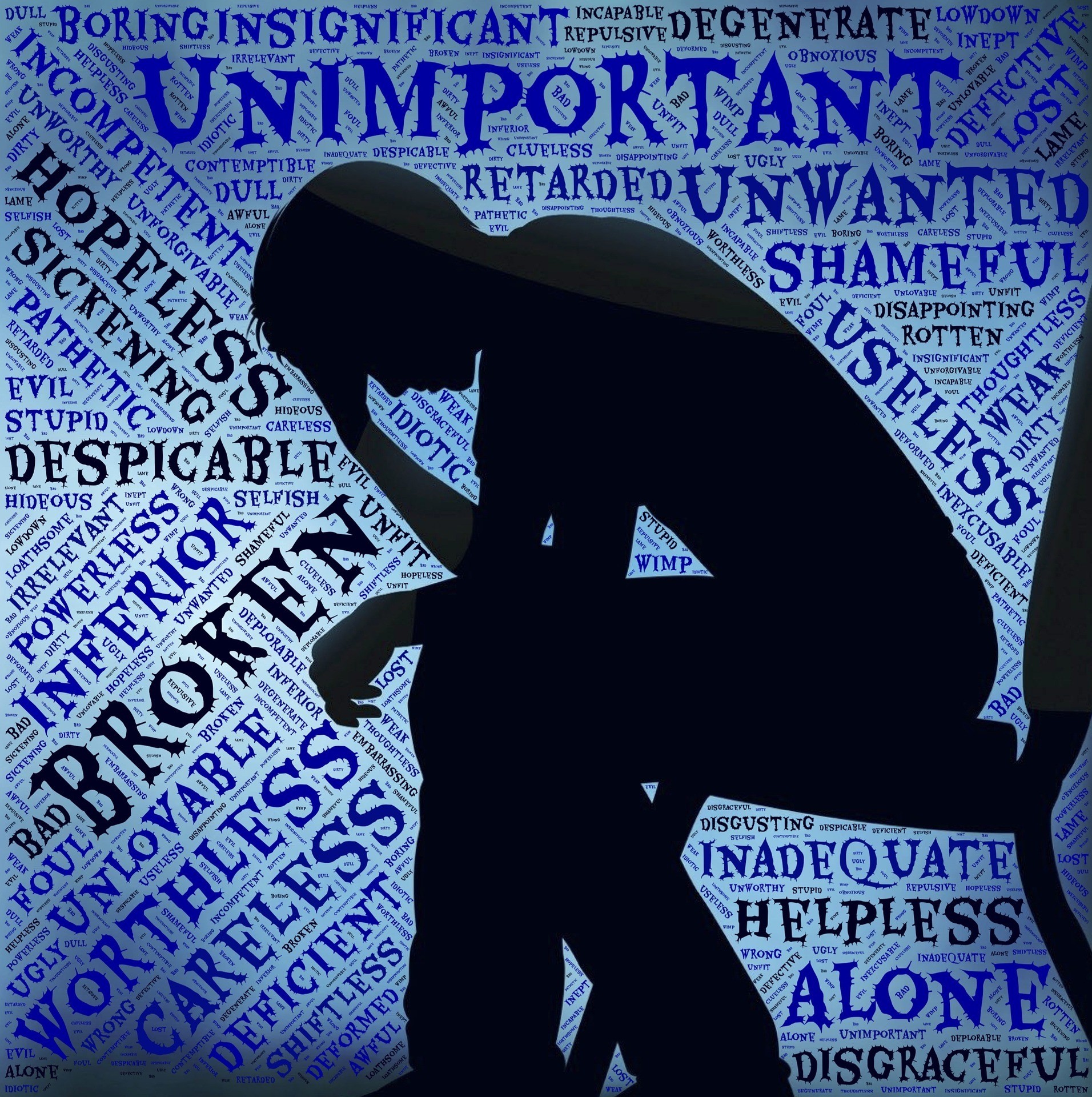How To Prevent Suicide And Help Someone At Risk With EFT Tapping?

TRIGGER WARNING: SUICIDE
Some narrations in this post may be triggering for certain individuals. If you feel that your mental health could be triggered or affected by reading stories about suicide-related topics, we advise you not to read further. As a precaution, please ensure you have support around you while reading. If you feel triggered, please seek professional care immediately."
Suicide. A letter, a note, a poem. That silhouette of a youth hanging from a fan, on the ledge of a bridge, or in a bathtub with cut wrists. The epidemic that many fear, but few want to discuss.
Suicide awareness isn’t a fun topic to chat about at brunch with the girls, or to bring up at a family get-together.
Nevertheless, it’s an important crisis that is only made worse because of the lack of awareness surrounding it, and because mental health stigma prevents many people from reaching out and asking for help.

"The World Health Organisation estimates that one million people die from successful suicide attempts per year, which amounts to one death every 40 seconds." (1)
Suicide is now among the 3 leading causes of death for those aged 15 to 44. This is a testimony to the fact that this is a large-scale problem, not just a background social issue.
Suicide deaths often leave behind unanswered questions, and those affected may experience a mix of grief, guilt, anger, and confusion. People with suicidal thoughts frequently struggle to feel heard. Many myths surround suicide, such as the notion that discussing it with someone will push them towards it.
Tragedies like suicide can be avoided. Knowing how to respond when someone is having suicidal thoughts can help save lives. The way we talk about suicide matters, and the consequences of these discussions go far beyond chats with family and friends.
According to research, the way journalists write about suicide, may contribute to an increase in the suicide rate. Without sensationalising mortality, a constructive way to reporting on and talking about suicide raises awareness and cultivates empathy. (2)
My view is “What if they needn’t reach that stage? What if they were able to speak to a qualified practitioner to help clear their thoughts? Just imagine how much safer it would be to never allow such thoughts to enter their consciousness in the first place.”

CAUSES AND RISK FACTORS OF SUICIDE
There is no single reason why someone might contemplate suicide. Suicide does not discriminate by age, gender, wealth, race, religious preference or sexuality. Individuals thinking about suicide may be experiencing symptoms of mental illness, or various life stressors, such as loss of a loved one, financial strain, relationship issues, job loss, health changes, or other significant life changes.
Suicidal thoughts are frequently the outcome of a feeling of helplessness when confronted with an overwhelming life scenario. If you don't believe in the future, you can incorrectly believe that suicide is a viable option. You may have tunnel vision, believing that the only way out is to commit suicide in the midst of a crisis. Suicide may also have a hereditary component. People with a family history of suicide are more likely to commit suicide or have suicidal thoughts or actions.
Just as starvation leads to death from lack of nutrients, suicide can result from insufficient emotional 'nutrients' in our lives – companionship, love, respect, and other vital emotional requirements. A person might be considered 'starved' of these essential components of a healthy social life, which can manifest as triggers for suicide, such as grief, loss, depression, helplessness, and feeling overwhelmed.
You may be at risk of suicide if you:
- Have previously attempted suicide
- Feel hopeless, worthless, agitated, socially isolated or lonely
- Experience stressful life events, such as loss of a loved one, military duty, breakup, or financial/legal difficulties
- Have substance abuse issues — alcohol and drug abuse can intensify suicidal thoughts and make you feel irresponsible or impulsive enough to act on them
- Have an underlying psychiatric disorder, such as major depression, Post-Traumatic Stress Disorder (PTSD) or bipolar disorder
- Have a family history of mental disorders, substance abuse, suicide, or violence, including physical or sexual abuse
- Are lesbian, gay, bisexual or transgender (LGBTQ+) with an unsupportive family or in a hostile environment
- Are a victim of bullying
- Are reading or hearing an account of suicide or knowing a peer who died by suicide (3)
Working mother Donita Packard recently attended a heart-wrenching funeral. A dear friend of hers had committed suicide after suspecting her husband of infidelity. According to the OECD, 55% of suicides are attributed to external factors of this sort, while the remaining 45%, are caused by chemical imbalances in the brain, indicating a genetic susceptibility to depression, anxiety, and suicidal thoughts.
WARNING SIGNS
The following are some common warning signals that someone may be feeling suicidal:
- Changes in mood
- Giving away prized possessions
- Putting affairs in order
- Withdrawing
- Changes in physical appearance
- Prior suicide attempts
- Alcohol or drug use
- High-risk behaviors
- Making statements with themes of hopelessness, helplessness, and fear of becoming a burden
- Making verbal suicide threats, such as “I want to die” or “I’m going to kill myself”
- Any other significant changes
Trust your instincts. If you’re concerned that something feels different or wrong, it probably is. (4)
Stigma and Taboo
Because of the stigma associated with mental illnesses and suicide, many people experiencing suicidal thoughts or who have attempted suicide do not seek treatment, and, therefore, do not receive the help they require. Due to a lack of understanding about suicide as a serious public health concern and the stigma in many communities surrounding open discussion, suicide prevention has not been adequately addressed. Only 38 nations report having a national suicide prevention strategy, and few countries have included suicide prevention among their health objectives.
Raising community awareness and breaking down the taboo is crucial for countries to make progress in preventing suicide.
What Does This Tell Us?
When examining the leading causes of suicide, it becomes clear that whether a person's external environment or brain dysfunctions contribute to their suicidal tendencies, suicide is never the victim's fault.
In her TEDx talk titled 'Casually Suicidal,' Sarah Liberti describes how her best friend once said to her, “You’ve always known what I've thought about people who want to kill themselves: Let them. They’re weak. And we’re better off without them.” Sadly, this reaction is not uncommon. Often when seeking help, suicidal individuals hear statements such as “It’s all in your mind," "Get over it," or worst of all “Suicide is a sin.”
It is becoming normalised to treat suicide as voluntary action instead of a cry of desperation.
We view suicidal individuals as feeble rather than as those unable to communicate the pain we all feel to some degree.
It's time we stop viewing suicide as a crime and instead see suicidal tendencies as manifestations of deep emotional disturbances – an issue where the affected individual is the victim, not the culprit.
Prevention is better than cure. It's only when we acknowledge a problem that we can prevent it.

WHAT CAN YOU DO TO HELP
Referring to her friend, Donita Packard shares, “I can identify with her pain because I myself have had suicidal thoughts. I was lucky enough to receive the care I needed. But my friend left behind a grieving family that only found out she needed help after it was too late.”
This story is not uncommon.
People with suicidal thoughts often do not talk about them, fearing the stigma and discomfort surrounding the topic. As a consequence, innumerable patients do not receive adequate help.
If you're concerned about someone, ask them, "Are you having suicidal thoughts?" or “Are you thinking about killing yourself?” A simple question like one of these can save a life.
There's a common myth that asking someone about suicidal thoughts will plant the idea in their mind. This isn't true. In fact, by asking the question, you're inviting that person to share their feelings, thoughts, and experiences.
This situation can only be prevented if we, as a community, work together to create a supportive environment where people feel comfortable reaching out for help.
Here are some steps you could follow:
Talk
Talk to people about suicide. Educate them if you know something, reach out to them if they are struggling, and ask for help if you need it.
Listen
Brushing away problems never solves them. Listen when suicide comes up, support those who’ve asked for your help and heed those who are helping you.
Act
This is the most important component. Discussion without action doesn’t prevent suicide. Bringing the person to wellness does.
If someone tells you they are suicidal, do not ignore it.
- Provide all the support you can as a friend.
- Encourage them to see a professional. Getting a diagnosis and/or therapeutic help is essential for their situation to improve. Just as toothaches need dentists, mental illnesses need psychiatrists and emotional imbalance needs therapists.
- Give them the suicide hotline number available in your respective country. Set it to speed-dial on their phone.
- Help them find a support group.
- If you happen to live with them, ensure that triggering, sharp, poisonous, or otherwise harmful objects are well out of their reach.
The first step is to get a diagnosis.
After that, finding a modality of therapy that works for the particular individual in question is crucial. Not all therapies work for everyone. While one kind of therapy might be effective for certain issues, others might require a different approach.
One modality that I have found effective for addressing negative beliefs is Emotional Freedom Techniques (EFT). EFT is an incredibly powerful, clinically proven tapping technology that helps clients release negative emotions and clear their mind to make way for constructive thoughts.
For those new to EFT, a free booklet is available for download.
HOW TO HELP WITH EFT TAPPING
Society has generalised suicide as a fault or a weakness, considering it a taboo, neglecting its severity, which is as serious as any physical disease.
When introduced to patients with suicidal tendencies, EFT can be a highly effective tool in addressing thoughts about ending one's life before they become overwhelming. Thus, EFT can be used even before the susceptible person has suicidal thoughts to eliminate any risk at all!
One of the best ways to learn EFT or become professionally qualified as a Practitioner is to attend an EFT Practitioner Training Program with a Certified Trainer.

HOW TO SELF HEAL & BECOME AN EFT PRACTITIONER
Discover how EFT can help you to self heal or to become professionally qualified as a Certified EFT Practitioner. Emotional Freedom Techniques (tapping) is clinically proven to lower stress, tension, anxiety, past-trauma to enable health, happiness and vitality.
The WHO predicts that by 2020 the rate of suicides will increase to one every 20 seconds.
Let's work together to help them prove them wrong.
Suicide prevention hotlines (5):
Australia | 13 11 14 1800 55 1800 | |
Argentina | 135 (desde Capital y Gran Buenos Aires) (011) 5275-1135 (desde todo el país) | |
Brazil | 188 | |
Belgium | 0800 32 123 1813 | |
Bulgaria | 02 492 30 30 | |
Czechia |
| |
Denmark | 70201201 | |
France | 09 72 39 40 50 | |
Finland | 09-2525-0111 | |
Germany | 0800-1110111 | |
Greece | 1018 | |
Hong Kong | 2389 2222 | |
Hungary | 06 1 116-123 | |
India | 91-9820466726 | |
Ireland | 116 123 | |
Israel | 1201 | |
Italy | 800 86 00 22 | |
Japan | 0570-064-556 | |
New Zealand | 0800 543 354 | |
Netherlands | 0900-0113 | |
Singapore | 1800-221-4444 | |
Spain | 93 414 48 48 717 003 717 | |
South Korea | 1393 | |
Taiwan | 1995 | |
Thailand | 1323 | |
United Kingdom | 116 123 | |
United States of America | 1-800-273-8255/Chat |
If you know someone at risk, seek professional help immediately.
If you know someone who has lost a loved one as a result of suicide please get us in touch.
EFT can help to overcome the past and be able to move on in a healthy and wholesome manner.
A good friend of mine lost her husband to suicide. It was traumatic for her, her children and their extended family. What was worse was her son was the first person to have discovered what had happened. No amount of therapy can turn back the clock and yet the sessions we had together allowed all the pain and hurt to be released. It allowed her to make peace with what happened and to be able to move on and rebuild her life.

In conclusion, a lot of suicides can easily be prevented by providing the right type of intervention.
It is important to keep our senses alert at all times to notice these tendencies among our loved ones and friends.
Catch it early! Let us help you.
Love,
Dr Rangana Rupavi Choudhuri (PhD) with Ashni Acharya
P.S. - Many suicides can be prevented with the right intervention. Emotional Freedom Techniques (EFT) can help eliminate stress, helplessness, anxiety, loss, and low feelings that can trigger self-harming behaviors.
In summary, you can save a life by helping someone in need. Whenever you feel a person is going through depression and you sense negativity is taking over them, don't ignore, talk to them, help them overcome it. Even if you can't help, get in touch with those who could.
References:
- https://www.who.int/news-room/fact-sheets/detail/suicide
- https://www.goodtherapy.org/blog/talking-and-writing-about-suicide-why-it-matters-what-to-say-0529177
- https://www.mayoclinic.org/diseases-conditions/suicide/symptoms-causes/syc-20378048
- https://www.healthpartners.com/blog/suicide-prevention/
- Suicide and self harm policy, https://support.google.com/youtube/answer/2802245?hl=en-GB
Disclaimer: The information on this website is purely for educational purposes and does not in any way replace the requirement for medical and psychological diagnosis and treatment. Please do seek professional medical and psychological diagnosis and advice for all medical and mental health conditions. It is advised to always book any consultations with qualified professionals.
Learn Emotional Freedom Techniques for self healing or to become professionally qualified - More
Our other seminars:
For the full calendar of events.








